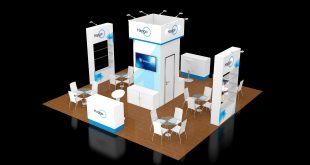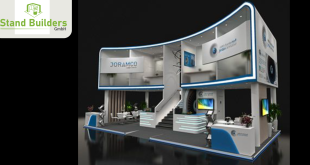Air conditioning systems are vital for comfort, especially during hot months. However, even the most well-maintained AC units can fail prematurely if hidden factors impact them in your home. These factors often go unnoticed but can significantly reduce the efficiency of your system, leading to higher energy bills and costly repairs. Ahead in this post, we’ll explore unknown factors in your home that could be silently hurting your AC and how you can address them before they lead to breakdowns.
However, if you ever require AC Repair Coral Springs services, it’s crucial to recognize these issues early on to prevent extensive damage. Here are some of the common hidden culprits.
-
Volatile Organic Compounds (VOCs)
VOCs, or volatile organic compounds, are chemicals found in household products like cleaning supplies, paints, air fresheners, and even furniture. These compounds release fumes that can build up in your home, and over time, they can clog your HVAC system. The buildup can affect both air quality and the components of your AC, making it work harder to circulate clean, cool air.
How It Affects Your AC: When VOCs accumulate in your HVAC system, they may cause components to deteriorate and reduce airflow. It leads to your AC working overtime to maintain a comfortable temperature, causing unnecessary strain on the system.
Solution: Switch to low-VOC products or natural alternatives, and regularly ventilate your home. Proper ventilation ensures fumes don’t get trapped in your system, reducing strain on your air conditioning.
-
Unbalanced Ductwork Design
Many homeowners don’t realize that the design and size of the ductwork play a major role in AC efficiency. Ducts that are too small or improperly designed can restrict airflow, making it difficult for cool air to reach every room. On the other hand, ducts that are too large can lead to excessive cooling, putting unnecessary strain on your AC.
How It Affects Your AC: When your ducts aren’t balanced, your AC has to work harder to push air throughout your home. It reduces the overall efficiency of your system and can lead to early wear and tear.
Solution: Have a professional inspect your duct system to ensure it’s properly sized and balanced. Adjustments to ductwork can significantly improve airflow and AC efficiency.
-
Negative Air Pressure in Your Home
Negative air pressure occurs when air is sucked out of your home faster than it can enter, often through exhaust fans, poorly sealed windows, or unbalanced ventilation. It forces your air conditioning system to overcompensate for the influx of hot, humid air from outside.
How It Affects Your AC: With negative air pressure, your AC has to cool more air to offset the warm air entering from gaps, increasing energy consumption and the load on your system. Over time, this could lead to cooling inefficiency or system failure.
Solution: Check for gaps around doors, windows, and ducts, and seal them. Ensure exhaust fans are balanced with adequate intake ventilation to maintain neutral pressure in your home.
-
Placement of Houseplants
Houseplants are a lovely addition to your home, but they can also contribute to increased humidity, which can affect how well your AC operates. Plants naturally release moisture into the air, which may make the air more humid, especially in rooms with poor ventilation.
How It Affects Your AC: Increased humidity can make your AC work harder to cool the air, reducing the system’s overall efficiency. Your AC has to handle both cooling the air and dehumidifying it, which leads to higher energy consumption.
Solution: Limit the number of plants in rooms where your AC is running most frequently. Alternatively, use a dehumidifier to help maintain the right balance of humidity in your home.
-
Unnoticed Pests in Ducts
Pests like rodents and insects can sneak into your ductwork, creating nests and blocking airflow. These critters can also carry debris and dirt that clog air filters, making it harder for your system to circulate air effectively. This problem is often difficult to notice until it’s too late.
How It Affects Your AC: Pests can obstruct ducts, leading to reduced airflow, increased wear on the AC system, and even potential system failure due to debris buildup and droppings in the filters or coils.
Solution: Regularly check your ducts for signs of pests. If you suspect an issue, contact AC Repair Coral Springs technicians to clean and inspect the system. Keeping your home free of pests will prevent long-term damage.
-
Attic or Crawl Space Heat
Heat buildup in attics or crawl spaces can inadvertently affect your home’s cooling system. If these areas are poorly ventilated or not insulated correctly, the heat can seep into your living spaces, forcing your AC to work overtime.
How It Affects Your AC: Extra heat in your home means the AC has to work harder to bring the temperature down, which leads to inefficiency and higher energy bills. Over time, it can accelerate wear on your system.
Solution: Add insulation to attics and crawl spaces to help prevent heat from transferring into your living areas. Consider installing attic fans to increase ventilation and reduce the heat buildup.
-
Faulty Zoning Systems
Zoning systems are used to regulate the temperature in different areas of your home, but if the dampers or sensors are damaged, it can cause uneven cooling. Some areas may become overly cool while others remain warm, causing your AC to work inefficiently.
How It Affects Your AC: When zones aren’t functioning properly, your AC might have to cool areas that don’t need it, wasting energy and putting unnecessary stress on the system.
Solution: Have a professional inspect and repair your zoning system to ensure all dampers and sensors are functioning as they should. Proper zoning ensures your AC works more efficiently and can save energy in the long run.
-
Refrigerant Line Damage by Landscaping
Your outdoor AC unit is connected to refrigerant lines that run through your yard. Landscaping tools, tree roots, and overgrown plants can easily damage these lines, causing refrigerant leaks and reducing your AC’s cooling capacity.
How It Affects Your AC: Leaking refrigerant causes your AC to work harder to achieve the desired temperature, which increases energy usage and can cause the system to break down if not addressed.
Solution: Regularly check the area around your outdoor unit to ensure no plants or tree roots interfere with the refrigerant lines. If you suspect a leak, contact AC Repair Coral Springs technicians immediately to prevent further damage.
Closing Thoughts
While some factors may seem small or insignificant, they can significantly impact the health of your air conditioning system. If you notice any of the issues listed above in your home, it’s important to take action before they cause your AC system to fail prematurely. Regular maintenance, sealing gaps, and monitoring indoor air quality are simple steps that can help extend the lifespan of your system and improve its efficiency.
Besides, if you’re experiencing issues with your AC or suspect that one of these unknown factors is causing trouble, don’t hesitate to call a professional AC Repair Coral Springs agency. Remember that with regular inspections and proper care, you can keep your AC running smoothly all year round.
 Daily Blogger News Stay updated with the latest trends and insights. Your reliable source for daily updates and information.
Daily Blogger News Stay updated with the latest trends and insights. Your reliable source for daily updates and information.







